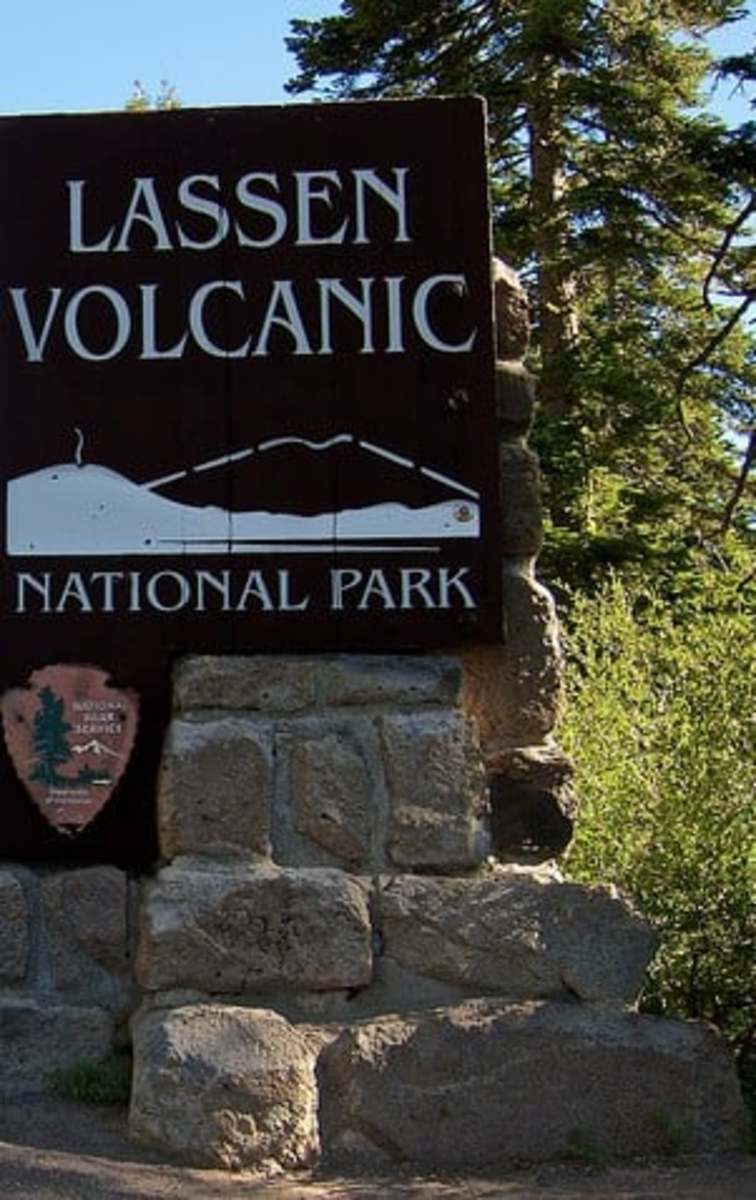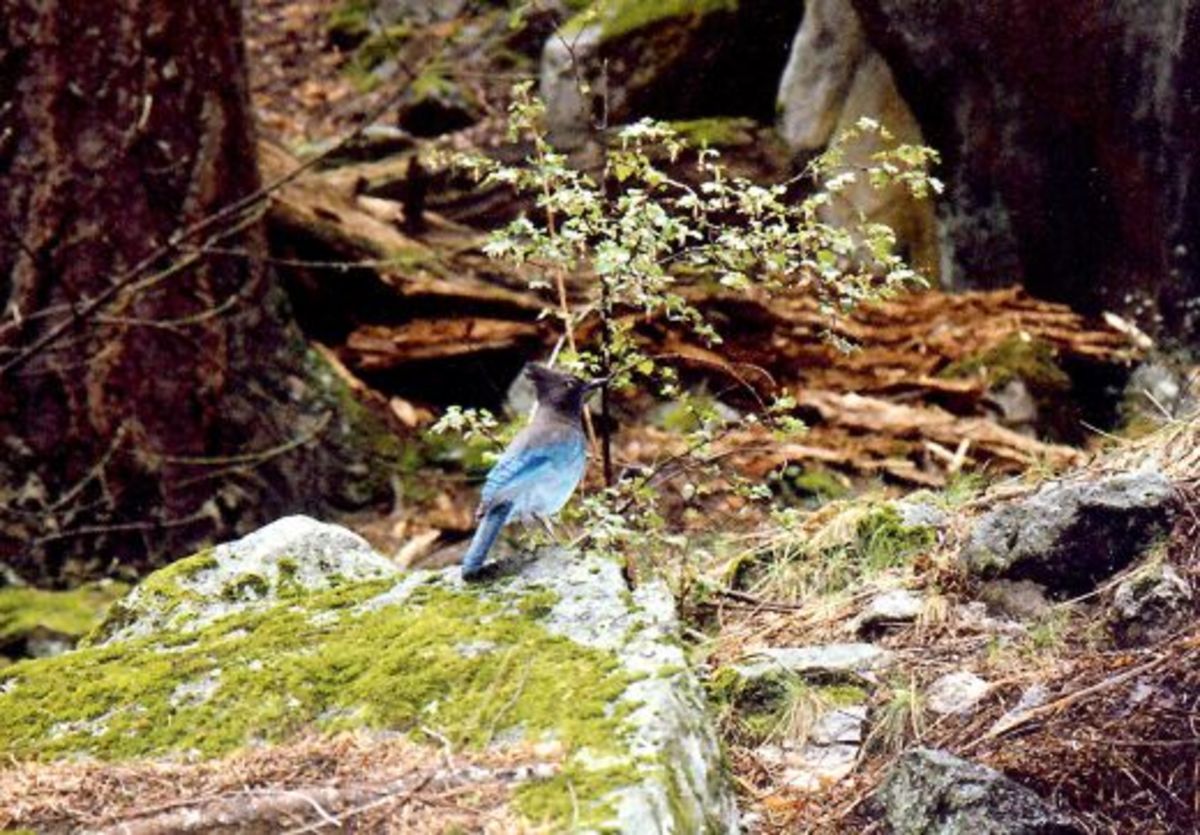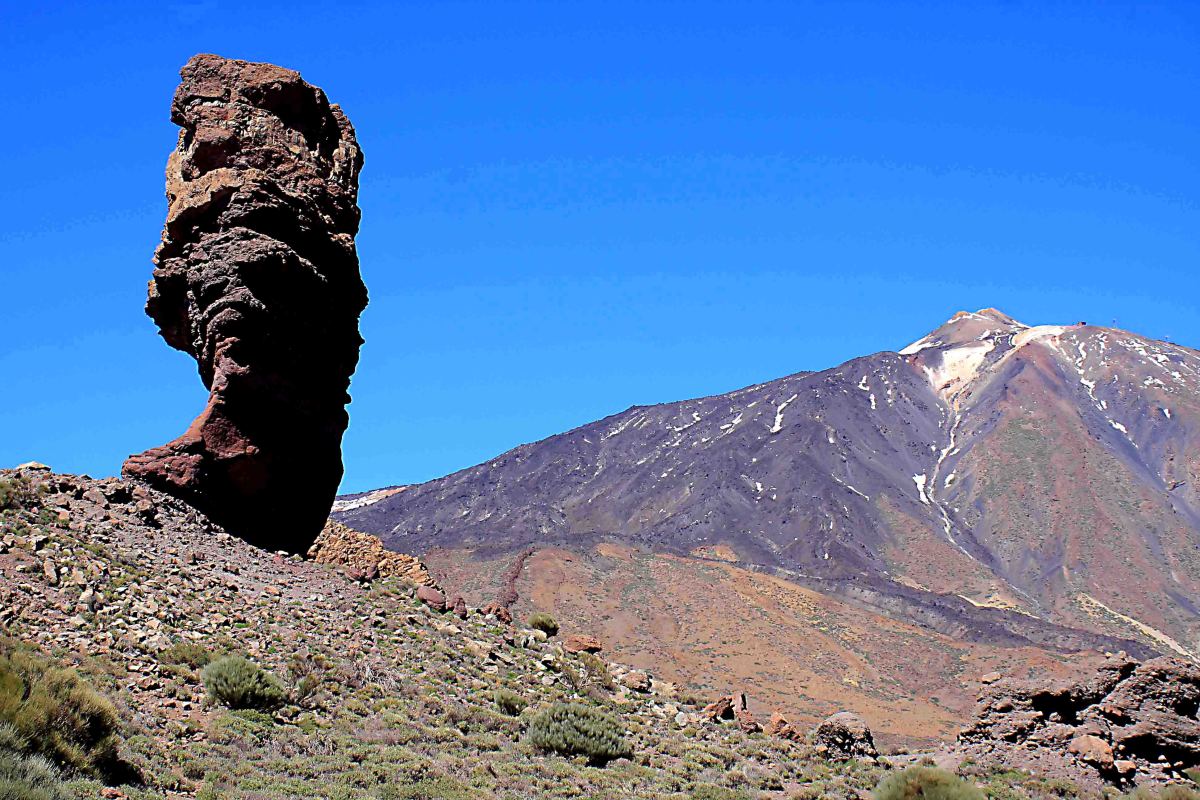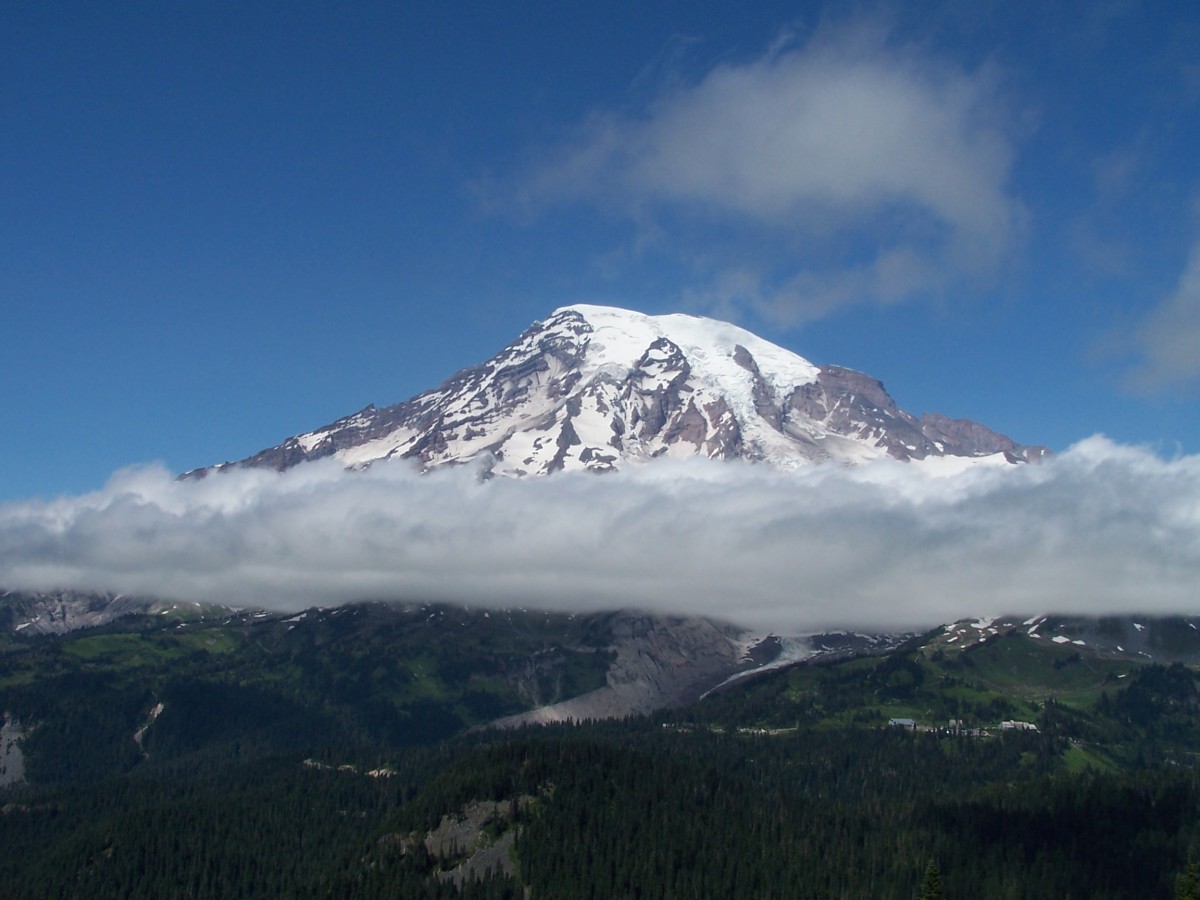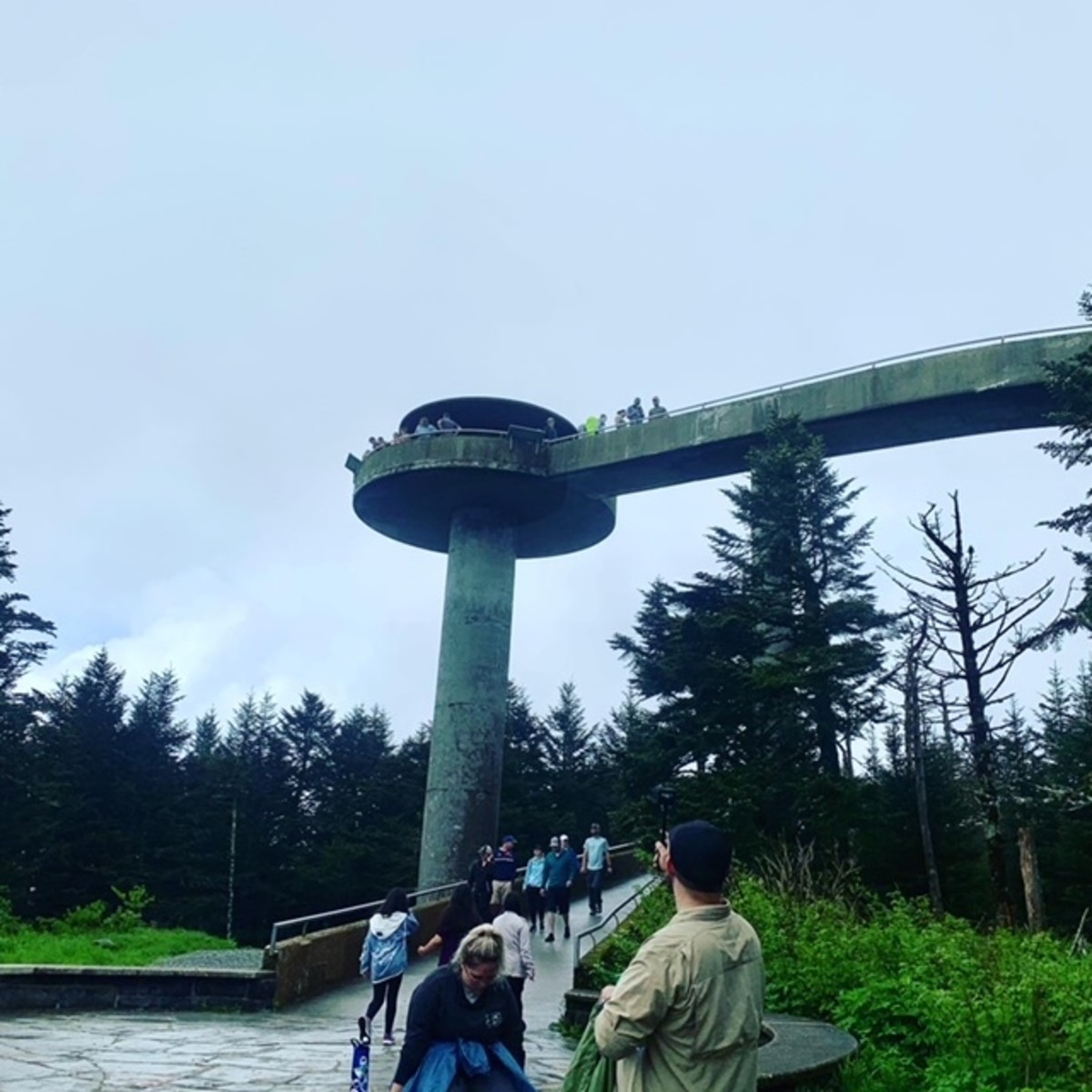A Ranger's Ramblings
Ishi, the last of his people
Entry from the Summit Lake Ranger Station Log Book, Lassen Volcanic National Park: I came home to Summit Lake last night and slept on the big back porch, under a clear sky of brilliant stars. At 6:30 a.m., I awakened to a sky full of clouds to the west and all lit up by the rising sun- and a beautiful misty rainbow across the western sky- it became a double rainbow and then it began to rain...
Life's a great joy, so sweet, so rich, and yet filled with toil and pain and loss, and that's a true fact. Living and working in a national park is certainly part of that joy and richness. I went through a stage of running into former students and some are just lost, and I worry. Actually, they have come up to me, one at a burger joint, another at a street fair, another in the grocery store, to talk and reconnect in a small way... when they were my students, back in fifth or sixth or seventh grade, they still seemed full of hope and belief and faith. It makes me worry that maybe teaching is a great lie: you spend a school year or two with kids, and nurture and make them believe with education it will all work out and life will be grand. One boy's father had died when he was my student, and he hadn't really recovered. Another boy I knew went through the sorrow of his mother taking her own life and the hurt is still deep, like a Grand Canyon of ache. One young man was tattooed head to ankles, even some prison tats, yet still like the boy he was back in my classroom. He loomed over me, now, but was gracious and grateful for the time he spent with me. He still had thoughts of getting back to school, get that engineering degree, but it seemed to me that he had already traveled a long way down a difficult road. Still, the human spirit is unstoppable and I wished him success.
It got me to thinking about "lost" boys in our society, with no real culture or connection to the wider world, and that got me to thinking of the sad story of the Native American, Ishi, and to the end-of-the-world classic, Earth Abides, a powerful and compelling novel written by George R. Stewart. Ishi is the absolute lost boy, who has grown to adulthood and been left to face an alien world, completely alone. To lose a child, partner or spouse, to survive the death of one's entire family: that has to be unbearable heartbreak... but to outlive your whole race of people and be the only one left? To be the lone survivor of some ghoulish holocaust? How can anyone imagine that pain and loneliness? Ishi and the lost boys. That has the ring of a story to it.
Most everyone knows a little of the story about the Native American, Ishi, especially if one went to public school in California. How he came to be the last of his people. Ishi was born around 1860 and died in 1916 of tuberculosis, a disease brought to the Americas by the Europeans. Last member of the Yahi, the single survivor of the Yana group of Native Americans, he was found, hungry and lost, but not defeated, you know? near Oroville, California, having left his ancestral home in the foothills near what is today Lassen Volcanic National Park. Did you know, the word "Ishi" means "man" in his native tongue. When asked his real name, Ishi replied that he had no name, as there was no one left alive to bname him. There had been no coming-of-age ceremony to give him his rightful place in this world. How sad is that?
It was in 1865 that the Three Knolls Massacre occurred- many Yahi were slaughtered, woman, babies, young girls and boys, by whites,, and only about 30 Yahi survived. Ishi would have been about 5 years old at that event. And these people were not a warring people, but at the mercy of prejudice and hatred, The remaining Yahi hid out for 40 years, but only after cattlemen killed half of the survivors of Three Knolls. Then, in 1908, surveyors came upon an elderly woman, and old man, and a young girl, in a small camp, but did not find Ishi. The surveyors destroyed the camp, took everything. The old woman, Ishi's mother, died soon after,and then so did the others. Alone, lonely, disheartened, nearly beaten, Ishi eventually went down to the place of his enemies and surrendered. What kind of courage did that take, I wonder? To see everything and everyone lost, dead, gone and then be driven to go to the very people who had committed such sins against his own? The comfortable world we enjoy today is sadly littered with such examples of human greed, prejudice and hatred.
Some might argue that it was ordained, the way in which the Europeans took over, took the land, destroyed the native cultures already here. I've heard some say that it is the American way, and to mention or question events in our history is to be anti-American. There certainly were atrocities on both sides, on all sides, of the conquest of the Americas by Europeans, but it can be argued that victory goes to the side with the technologically advanced weapons, with the greatest numbers and the determination to conquer... and the victors get to write the 'sanitized' version of history. I don't think it is 'liberal angst' to see the sorrow in Ishi's story and realize that things could have turned out differently.
Why talk of Ishi? Because I was fortunate enough to be in a place and time to see Ishi come home... to see him rightfully restored to his home land and his close relatives, if not his own people. In the summer of 2000, right outside my historic Summit Lake Ranger Station in wondrous Lassen Volcanic National Park, I was able to participate in a small way and watch native peoples of Northern California perform he ceremonies that brought closure to a small, sad chapter of American history, and of a single man's life.
There comes a time in August when a great group of people, native people, descend upon the meadow and adjoining ranger station near Summit Lake, in the heart of Lassen Volcanic National Park. I have a unique dual role: I am a member of the special events or "set" team with other rangers of the park and some from other national parks. I get to help guard this event of Ishi coming home, and be a buffer between the public, the media, and this most private of ceremonies. I also happen to live in and am stationed at the Summit Lake Ranger Station/residence and am right in the middle of things. In a lot of ways we rangers are outsiders, and I actually relish this fact. To be viewed with a little suspicion, feel that one is judged by one's skin color, and by being a law enforcement individual, in a negative light, is a good thing to experience, I think. Race is such a complex issue, but I represent some stereotypes for a lot of Native Americans, and I try to remain aware of this during this event. There are a few tense moments, and I am grateful to have on site my good friend, Lupe, a Pit River native who is of some importance to her people. She is a good liason, a powerful force helping us all get along, and I am lucky to know her, as she smoothes over some rough edges. When a group of people try to barge their way into my ranger station to use it for dressing rooms, when they want to claim it as their own, and not my duty station! I have to confront this situation, there is some anger, but it gets worked out... Lupe helps a lot!
I realize that I am really on the periphery of the main event, the ceremony at that secret place where Ishi is finally at rest, and I will not be one who knows that sacred spot. And I don't need to know... it is enough to be aware that this high volcanic landscape is where he is. I would love such as honor as to have my ashes scattered somewhere across the miracle that is lovely Lassen Park. And still, there is a lot going on right here, outside my ranger station, in he meadow and parking areas: food and celebration, sweat lodges, preparations for a bear dance, and clamor of many people.. Our understanding is that folks will NOT camp in the sensitive meadow areas, and there is no fire allowed, we rangers were told, at the site of the bear dance, out in the lush green meadow grasses. But, things don't always happen as planned, and by evening there are a number of tents set up around the little tree islands scattered through the Summit Lake meadows. And as the evening darkens, a large fire lights up and the drumming and dancing begins. It is powerful stuff, and there is little we can do without causing a big scene... so we don't do anything but observe.
To that end, there is some blame from park managers, which gets focused on our district ranger supervisor, who shares some frustration with us field rangers, but really, there is not much that we could have done. At the conclusion of the event, the tents disappear, the sweat lodges are removed, no trash is left behind, the fire area is cleaned up, the meadow grasses will grow back, the trucks and supplies and equipment are all sent away, and the natural quiet and beauty of the Summit Lake meadow returns. See, all of those people knew how to treat the land, and clean up faithfully... it is all good!
In August, 2000, Radley Davis, a member of the Illmawi band of the Pit River Tribe, wrote the following about the events that brought Ishi to his final resting place:
Earlier this month, we laid our relative, Ishi, to rest. It was a small, private ceremony, and we conducted it in a good way. The old people had talked about opening up the ceremony to the community, because that is the way for people to pay respect, people who have feeling for him; we didn't want to deny them that. But the old people agreed,, this time, to let the young people decide, and the young people felt it was best for the ceremony to be private, to prevent a disruption of the ceremony by the media.
When it was discovered that the Smithsonian Institution had Ishi's brain in a jar, worldwide media descended on us. They called our leaders at home at all hours of the day and night with no regard for their wishes or their privacy. TV, radio, print media, even authors and professors- all wanted exclusive stories, wanted a piece of us, right here, right now. I cannot find the words to describe how rude they were; the assault was overwhelming
So, the young people took on the awesome responsibility of deciding what to do. Some questions: How do we handle this? If the ceremony is private, how private? Do we ask the whole community to attend, or just some elders and community representatives? If the ceremony is public, how public? Do we invite the media? If not, how do we keep them out? If everyone knows where Ishi is buried, how do we protect him? Will grave robbers return and desecrate this sacred ground? Will Ishi's final resting place become a tourist trap?
The young people decided that, even now, we still have to protect our relative, Ishi. Even now, he can be exploited and humiliated. So, the elders supported that decision, because they wanted him to have peace, and we asked a young woman and and a young man from each tribe to be part of the ceremony so that they could pass it on. We told them never to forget where our relative is buried and to share his story with future generations.
My words cannot communicate to you how we felt, sending off our relative, Ishi, in a good way.We opened ourselves up to him, to the process. We cried for him and for our people. We sung for him, and for our people. In was an indescribable feeling to know that we did something so right that stemmed from something so wrong.
Volumes have been written and taught about our relative, Ishi. Every fourth grader in California has been taught that he was the last "wild Indian" in California, that he was the "last Yahi". That he was rescued by anthropologists and that he became a "living specimen", housed in a museum for the rest of his life. It was obscene, dishonorable, how the white people treated our relative, Ishi, what they wrote about him, and that they never acknowledged him as a kind, generous human being. And I am astonished at what they continue to teach about him.
So, when we received the ashes of our relative, Ishi, our elders determined the burial site and the process for his burial. We gathered many medicines. It was a kind of feeling, a great moment, that I wanted to share, but we shared it with nature only, and with our focus, it became complete. Our old people helped to keep us focused, to remember where our relative came from, to acknowledge the value of the mountains, to feel all these feelings and then to let him go.
And now, a part of us can rest, to know that bringing our relative, Ishi, home is the beginning of healing, to bring our scattered community back together. It was a tragedy that brought us together to do things in a good way. Welcome home, our relative. You have been sung for properly, you have been cried for in a good way. Our old people said that you have been taken care of and it's done. We welcome you home.
Home is such a comforting word. I always feel like I am home when I am in the Lassen Volcanic country. As a ranger, when I lived and worked there, I was a trail runner and an off-trail hiker and explorer, following the little creeks to see their origins, finding secret and sacred spots hidden away. climbing the large talus slopes and standing on the great blocks of broken rocks, looking off to far-away vista, the edge of the world. It comforts me to think that Ishi, and others long before me, did those same things, found those same spots, enjoying the silence and beauty of climbing up high and gazing off to far away lands.
So, Ishi gets a final resting place and the ceremonies that mark his culture, and a wrong gets righted. And that brings me around to lost boys, again. So many youth today have no 'coming-of-age' ceremony or event to mark some passage in adulthood, manhood. Yes, there is the all-important driver's license, and getting drunk, or high, or a tattoo, but what does any of that mean? To feel a part of something, to connect with others, is a basic human need... easy to see why desperate people, lonely or empty souls, turn even to gangs for support and some misguided sense of self, a way to fill the emptiness.
The classic science fiction book, Earth Abides, is also about being a last, lost one. In the novel of George R. Stewart's creation, a virus sweeps the planet, killing maybe 98% of human life very precisely and quickly. The main character, named Isherwood (Ish for short), one of the few survivors of this viral catastrophe, is really Ishi, facing a strange new world. he is forced to give up and die, or struggle to create a new world out of the broken mess of what is left, as nature works to rebalance herself after the time of Man.The story is based upon insightful scientific observation and is wholly plausible- made all the more interesting as it was published first in 1948. The book is worthy or a read... and really a basis for every end-of-the-world story or movie made since.
To all of the Ish's of the world, searching for connection, looking to pick up the pieces of a broken world and trying to create a meaningful life, connection to others, to nature, to a deeper power, I say," Don't give up, let the spiritual power of nature guide you and fill your soul. Climb those mountains and ford those streams and search for what is right and true and beautiful."

